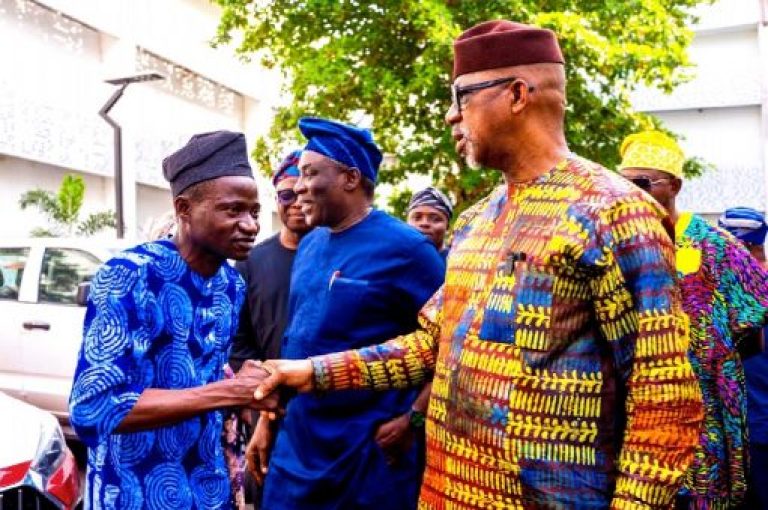
Yesterday, the federal government under Tinubu’s leadership announced the indefinite suspension of the multi-billion naira N-Power programme and an investigation into its administration over the past seven years.
The Buhari administration launched N-Power as part of the National Social Investment Programme (NSIP) to give young people more agency and reduce poverty.
Sadiya Farouq, who was Minister of Humanitarian Affairs, Disaster Management, and Social Development under that administration, estimated that the cost of the programme between 2016 and 2022 would be N890 billion.
Minister of Humanitarian Affairs and Poverty Alleviation Betta Edu announced yesterday that the programme had been suspended and an investigation had been launched because of multiple problems.
TVC News featured an interview with Edu.
She claims that the government was curious about the program’s use of the funds allocated to it over the years.
She claimed that some recipients had gone missing from their designated work sites but were still expecting to receive their regular cash payments.
She also mentioned that some other programme participants who should have left the programme after 2022 are still being paid.
Edu remarked, “We need to investigate N-Power again to figure out what the issues are. We have decided to temporarily halt the N-Power programme while we conduct a thorough audit of how the allocated funds have been spent.
We need to know how many people are currently participating in the programme, as well as how much money is owed to each participant. We’re expanding and revamping the N-Power entirely.
There’s a lot happening right now. We’ve encountered former programme participants who insist they’re still instructing, despite the fact that they’ve had a full year to leave the programme.
When we call their schools or workplaces, they aren’t always there. They haven’t worked in months, but they insist on getting paid for eight or nine.
About 80% of them are unemployed but still collecting paychecks.
On June 8, 2016, N-Power was established to combat youth unemployment and contribute to broader societal growth.
Graduates and non-graduates without jobs between the ages of 18 and 35 were prioritised for assistance.
It was meant to be a two-year paid programme.
There were six subsets within the scheme: N-Educate, N-Health, N-Agriculture, N-Construction, N-Creativity, and N-Tech.
N-Teach and N-Health were restricted to college grads who had served in the military for at least a year, but anyone could participate in N-Agro, N-Build, N-Creative, and N-Tech.
In 2021, a new category was added called N-knowledge, and its stated goal was to teach young people how to work with computer hardware. Laptop computers and other useful items were distributed to the recipients.
The previous federal government announced in February 2018 that it would be investing N1.3 trillion in its National Social Investment Programmes between 2016 and 2022 in an effort to better the lives of vulnerable Nigerians.
Independent Monitors (IM), Conditional Cash Transfers (CCT), the National Homegrown School Feeding Programme (NHGSFP), and the Government Enterprise and Empowerment Programme (GEEP) are the other pillars of the social programmes.








